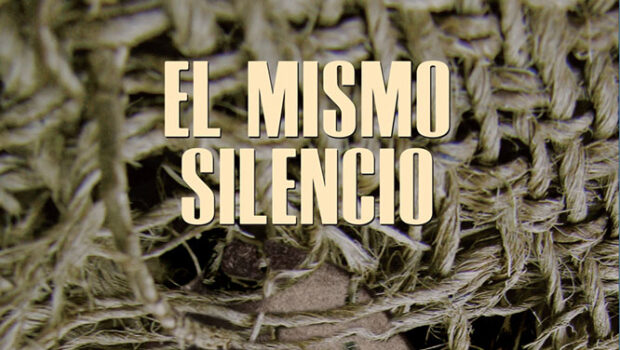Pobre Diabla
Irasema Fernández
English version by Robin Myers
Ever heard an ambulance siren turning off? It’s a languid sound, lower and slower every second. Really sad, papi. It’s the sound of happiness trickling down both corners of your mouth, a stream so long and viscous that your tongue can’t reach it. I was leaving the bar with tears in my eyes because I didn’t see you there. My beautiful legs, all oiled up the way you like—they went flying when I got hit, dragging across the pavement as if they had to measure the ground. Fifty feet, papi, according to the people who picked my body up and carried it away from the collision site.
I was lucky that you two were the ones who hit me, papi. You and your girl. Some other asshole could have fled the scene and left me smeared across the road. I remember every single detail, but it doesn’t matter now. What matters is that we’re all here, all three of us and the doctors. They talk about the facts, the important stuff, about what’s going to happen to me, as if I were deaf or not even there, but I pay as close attention as the anesthesia will let me. Why is she still awake? How much did you give her? Give her time, she’s in shock, they said. Haven’t you contacted her family yet? Not yet, one of them answered regretfully. But I don’t care about that, papi, because family’s all about expectation, as far as I’m concerned. The kind of expectation a girl can stir up out of so many other unrequited hopes. I heard her crying outside the room, trying to tell you that it was a mistake, it wasn’t on purpose, my legs had crossed her path like golden gazelles as you nodded off in the passenger seat and she drove you away from me.
And to think that my tits were pert and pressed together that night, my legs sleek; to think that I was wearing what became your favorite pair of shorts, papi, the ones you couldn’t take your eyes off when we met at the bar. I was wearing my Converse high-tops to make the ground shake. Outside it was pouring, but inside our bodies gave off steam like rain into a volcano. If you’d focused on the swaying of my hips, you would have known that they only exist to spell out your name, and if you’d read the story my hips were telling, you would have gone crazy. It’s your flow, papi. I was singing I want you to wreck me, que me des con un bate and did everything I could to make your eyes my eyes. The air was hot and the scent of me filled the room. It was my Chanel No. 5 that seeped into your nose and kept you from even looking at her. I had the urge to say that she wouldn’t make you come, that she’d never make you explode, not in six seconds or two hours. All you had to do was try me and you’d want a second helping of dessert. A pair of suns peered up from the low curve of my neckline, eager to wish you good morning every single day.
That’s what I was taught to do, papi. To know a true thing when I see it. My eyes could tell that you were mine and you’d never leave me. I could have snapped my fingers: five minutes and I would’ve brought you to climax. I know because a smile gathered in your pants as my ass pulsed and I sang to you from a distance I want us to stay up till the sunrise, que tu novia de esto no sepa nada. It took you six minutes to get me to the hospital. I left something on the ground you lifted me from, papito, because I felt my threads unraveling and unspooling like a wool sweater all the way to the emergency room. I came here with a set of messy seams, irreparable knots coiling into a communication system that reaches all the way to you.
Did you ever think that your universe would revolve around a single song? That night, I raised my glass with your name between my teeth: Juan, Martín, Sebastían, whatever, papi. I tongued your name with every sip and translated it into the circles my hips swung to the dembow beat. She was there, too, fearfully gauging the tension of my threads as they enveloped you, the strength of our muscles if they met, the tenderness, the dull hum of our skins thrusting together. She looked like the saddest, scaredest girl in the whole city. She was beautiful. And yet I was the one crying as I wandered the streets.
You saw me as the simulacrum of your happiness, and I’m the kind of girl who doesn’t suffer fools gladly. I printed age-old wisdom on the shadows of my curves. I got positive results. She’s the one who used her desperation as a last resort to get you out of there. That’s how we were raised, papi, but it doesn’t matter. Now my gauze, my threads pull taut like delicate spiderwebs in the rain. And I’ve got nothing left. That night at the bar, your body was this close to coming home between my legs. Tell this to the doctors, papi: that’s what family means to me.
 Irasema Fernández (México, 1990) es feminista, escritora e ilustradora. Ha escrito para Confabulario, La tempestad, Tierra Adentro, Revista Nexos, entre otros. En 2017-2018, fue becaria del Fonca en la categoría de cuento. De manera autogestiva, y en compañía de otras artistas bajo el nombre de “Mujeres desde la periferia”, ha pintado murales con mensajes de género en diferentes partes de la Ciudad de México y el Estado de México. Instagram: @_irasema
Irasema Fernández (México, 1990) es feminista, escritora e ilustradora. Ha escrito para Confabulario, La tempestad, Tierra Adentro, Revista Nexos, entre otros. En 2017-2018, fue becaria del Fonca en la categoría de cuento. De manera autogestiva, y en compañía de otras artistas bajo el nombre de “Mujeres desde la periferia”, ha pintado murales con mensajes de género en diferentes partes de la Ciudad de México y el Estado de México. Instagram: @_irasema
 Robin Myers is a poet and translator. Recent book-length translations include Lyric Poetry Is Dead by Ezequiel Zaidenwerg (Cardboard House Press, 2018), Manca by Juana Adcock (Editorial Argonáutica, 2019), Empty Pool by Isabel Zapata (Editorial Argonáutica, 2019), Animals at the End of the World by Gloria Susana Esquivel (University of Texas Press, forthcoming), and Cars on Fire by Mónica Ramón Ríos (Open Letter Books, forthcoming).
Robin Myers is a poet and translator. Recent book-length translations include Lyric Poetry Is Dead by Ezequiel Zaidenwerg (Cardboard House Press, 2018), Manca by Juana Adcock (Editorial Argonáutica, 2019), Empty Pool by Isabel Zapata (Editorial Argonáutica, 2019), Animals at the End of the World by Gloria Susana Esquivel (University of Texas Press, forthcoming), and Cars on Fire by Mónica Ramón Ríos (Open Letter Books, forthcoming).
Posted: May 13, 2019 at 9:27 pm










